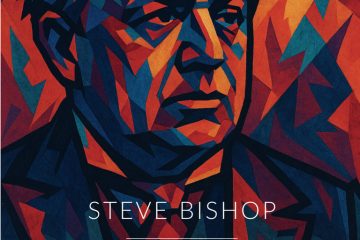Very pleased that the Scripture Union magazine Encounter with God has published my article ‘Transformation of Work’. Here is the article.
God is a worker and He calls us to work in His wonderful but broken world. Some find it surprising that God works but Jesus makes this clear in the gospel of John. “My father is always at his work to this very day, and I too am working.” (John 5:17). So both God the Father and God the Son are workers.
G.K. Chesterton tells a story about God working…making daisies and delighting in the work of His hands. God gets so excited about daisy-creation that He has to do it ‘again and again’. Before you know it there are millions and millions of daisies all over the world, bringing delight to God and humans (Proverbs 8:30-31).
Now God expected Adam and Eve to bear fruit by working – growing vegetables, making tools, building houses, looking after horses and designing work places. Eventually they and their offspring would invent helicopters. Theologians call this the cultural mandate. To understand the cultural mandate we need to take a closer look at the beginning of the Bible – the book of Genesis.
“God blessed them and said to them, ‘Be fruitful and increase in number; fill the earth and subdue it. Rule over the fish of the sea and the birds of the air and over every living creature that moves on the ground’. God saw all that he had made, and it was very good. And there was evening, and there was morning – the sixth day.” Gen 1:28
Let’s look briefly at these Hebrew words – kabash and radah (subdue and rule). Kabash is drawn from a Hebrew word meaning to tread down or bring into bondage. The other word radah comes from a word meaning to trample on and conveys the image of treading grapes in a wine-press. As His image bearers God calls us to rule and unfold creation in good and wise ways. When we work we turn grapes into wine…sounds into music…words into stories…sand, stone and wood into offices and work places.
Imagine Adam and Eve walking in the garden and they see a pineapple high up in a tree. Eve finds a branch and cleverly turns it into a garden tool by which to harvest the delicious fruit. This is ruling and unfolding creation. It is meaningful and creative work. God’s good creation is dynamic and full of rich potential. There is no doubt that humans are placed over the rest of creation. Humans are called to direct and manage God’s world unlike animals and insects which simply cannot carry out the cultural mandate.
Without doubt, if these commands were the only directive given to humans, it would be natural to blame the Bible as the source of the western exploitative attitude towards nature. To balance this, it is essential to probe deeper into Scripture.
Genesis 2:15 tells us: “The LORD God took the man and put him in the Garden of Eden to work it and take care of it.” The Hebrew words abad (work it) and shamar (take care of) focus on serving and caring for the animals and the earth. Both verbs (abad and shamar) sharply restrict the way the other two verbs – subdue and rule – are to be applied. God calls humans to serve the animals, the trees, the earth itself as they manage the good creation.
This biblical theme of serving and caring for creation becomes more explicit in the books of Exodus and Leviticus. Israel was mandated by God to rest the land in the Sabbath year and in the year of Jubilee (Lev 25:1-13). In every fifty year cycle, the land, as well as humans and animals, would enjoy eight years of Sabbath rest. Exodus 23:12 explicitly mentions Sabbath rest for animals, slaves and foreigners. All this is part of stewarding the earth.
So how can work be transformed in the light of biblical teaching? Two inspiring stories spring to mind.
George Cadbury famously owned a chocolate factory and he believed that the happiness and well-being of his employees was the chief aim of the business. He was profit-sensitive without being profit-driven. Cadbury was a committed Christian and his faith led him to treat his workers ethically. What was it like to work in the Cadbury chocolate factory? Each day began with Bible readings and prayer. The working day was considerably shorter than many other factories of the time. George and his brother Richard introduced half-days on Saturdays and bank holiday closing. Employees were encouraged to have fun at work. Sometimes George would tell his employees to knock off early and everyone would enjoy playing and watching a game of cricket. Sometimes half a dozen employees would be presented with a football and instructed to go and enjoy a ‘kick around’ in the local park on company time. In this way Cadbury refused to commodify or objectify his employees. They were not just human economic resources but image bearers of a good God who delights in both Sabbath rest and wise, responsible stewardship. When George died in 1922, his funeral was attended by over 16,000 people. Many were impressed by his compassionate and ethical approach to business.
A contemporary equivalent of George Cadbury is Randy Lewis who wasa senior Vice President at Walgreens in the USA. Walgreens is the American equivalent of Boots the Chemist and has 8,175 shops and employs 247,000 people. Lewis had an autistic son, Austin and he desperately wanted Austin to have a future and hold down a good job. Lewis discovered that many people with disabilities were isolated and unemployed. Lewis wanted to create meaningful and rewarding jobs for people with disabilities. He said, “We underestimate the abilities of people on the margins.” He persuaded Walgreens to change the work place to suit people with disabilities. Walgreens has now designed warehouses where 40% of the employees are people with disabilities. These jobs pay an equal wage to the non-disabled workers and hold all employees to the same productivity standards.
Employing people with disabilities has unleashed a surprising creativity and imagination in the company. In the Walgreens warehouses they use images rather than words which help employees who struggle to read. So instead of an ‘Aisle 14’ they will have a strawberry image. Here is a short story about an employee at Walgreens.
Derrill was born with epilepsy and a learning disability. He had struggled to find meaningful and well paid work. He had been employed in a hot and sweaty workshop where he was paid less than a dollar an hour. Then his life was transformed when Randy Lewis offered him a job at Walgreens. When Derrill first started working at a Walgreens warehouse, he walked with his head down and his eyes on the floor, rarely saying anything to anybody. On the day he earned his first paycheque, he gave it to his mum and she began to cry. Now her son was earning $14 an hour and his mother was delighted. Derrill used part of his wages to take his parents out to the Red Lobster restaurant for a celebratory meal.
The next day he asked his supervisor, Rico – “why did my mum cry?”
When the new Walgreens warehouse opened, Derrill’s parents attended the open house event. With his mother walking by him, Derrill pushed his father’s wheelchair. When Randy Lewis reached out to shake his hand, Derrill’s dad pulled him in for a hug and whispered in his ear: “Thank you Mr Lewis. My family is finally safe. Now I can die knowing they’ll be alright.” Within a year Derrill’s father died and Derrill was now the sole support for his mother – his salary more than either of his parents had ever earned.
Walgreens brought in outside experts to analyse the performance of the company. Their findings were fascinating. The workers with disabilities performed their jobs just as well as other employees but had less time off sick and a higher retention rate. “Fears about more accidents had come up, but we found hearing impaired forklift drivers – who many companies won’t hire – are twice as safe as someone who can hear,” Lewis explained. “If I could give everyone a piece of advice, it would be to put plugs in the ears of their forklift truck drivers.”
In conclusion George Cadbury’s Christian faith inspired a remarkable factory in the 19th century and Randy Lewis’ work has led to thousands of employees with disabilities doing work they love and getting good wages as well. Both men have been faithful to biblical teaching about the cultural mandate.
For Further Reading
Craig Bartholomew and Michael Goheen The Drama of Scripture: Finding our Place in the Biblical Story, SPCK, 2006
Randy Lewis No Greatness Without Goodness, Lion Hudson plc, 2014
- The Story of Fred Lemon who met Jesus and Two Angels in Prison - November 26, 2025
- The Inspiring Story of Abraham Kuyper (1837-1920) - October 22, 2025
- Fifteen False Prophets and Testing the Spirits - September 29, 2025


